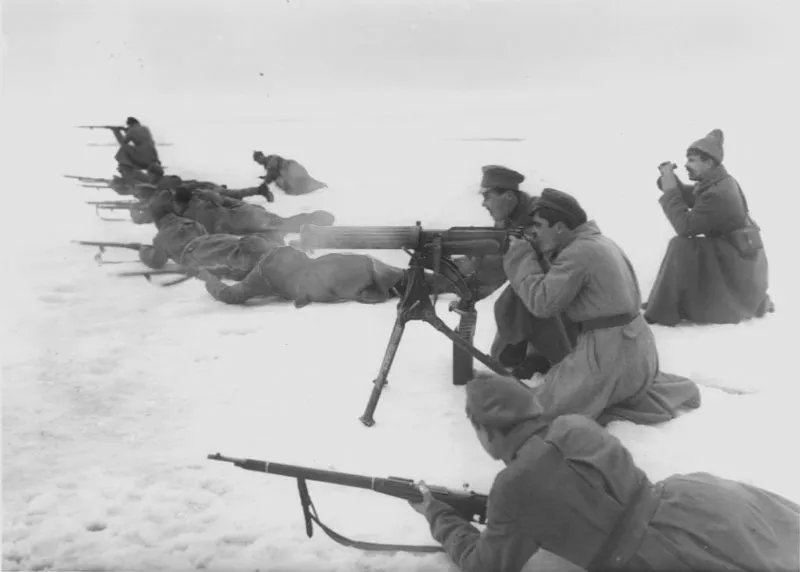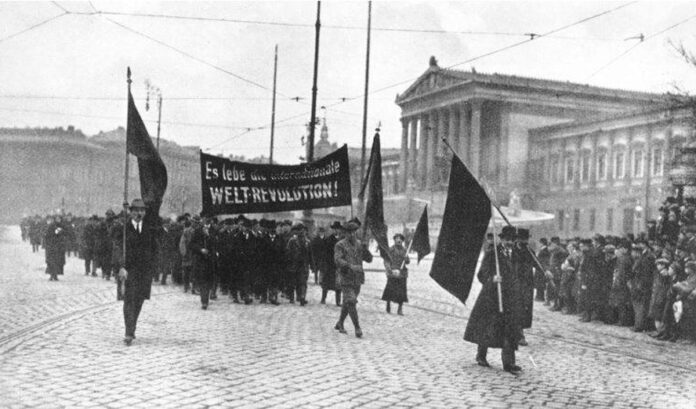Consequences and Retaliation
The October Revolution had many short-term effects, like civil war, famine, and reactions from countries around the world.
The Russian Civil War was a war between the Red Army, which were the communist Bolsheviks, and the White Army, who were people loyal to the Tsars, and disliked the Bolsheviks. The war lasted from 1918 to 1920 and ultimately ended with a Red Army victory.

Red army fighting, 1918, militaryhistorynow.com

Cannibalism, 1921, thesun.co.uk
While Lenin was in power, there was a famine that lasted from 1921-1923. It was caused by continuous war since 1914, the Bolshevik Government seizing crops, and a drought that wiped out any crops that were remaining. The famine got so bad that families would cannibalize their dead children so that the rest of the family could stay alive. The death toll of the famine was over five million, and over 90% of children under age 5 died.
Many distinct communist revolutions were attempted in countries all across Europe, though none of them ever lasted.
Countries around the world had a very negative reaction to the fall of the Tsar and the rise of the Bolsheviks. Although most Western countries saw it as a threat, there were people around the world who liked the idea of communism, but at the time, they called themselves Socialists or Marxists. Many of these communist supporters were the workers and lower class of European countries.

German revolutionaries, 1918, internationaliststandpoint.org
"The workers and peasants must and will prove that they can properly distribute labour, establish devoted discipline and ensure loyalty in working for the common good, and can do it themselves, without the landowners and in spite of them, without the capitalists and in spite of them."
-V. Lenin